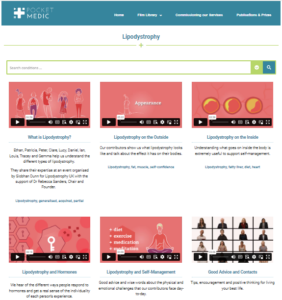
As part of the specialty training in Wales, there are opportunities to pursue research within the field. At any one time up to 4 trainees are able to take time out of programme to pursue an area of interest. Most trainees take 2-3 years undertaking research either full- or part-time (the latter combined with ongoing clinical duties) and work towards gaining an MD or PhD.
The most common path by which SpRs undertake a period of research in Wales is the Clinical Research Fellow scheme at University Hospital of Wales, Cardiff. Fellows spend approximately 40% of their time undertaking general medical clinical duties at University Hospital of Wales and University Hospital Llandough, with the remainder of the time dedicated to research. The research takes place under the supervision of academics /clinicians in Cardiff, depending on the choice of project. For further information on the scheme please contact Dr D Aled Rees, Senior Lecturer in Endocrinology reesda@cardiff.ac.uk
In addition, the Welsh Clinical Academic Training (WCAT) fellowships are run-through Lectureship training positions in Academic Medicine & Dentistry. They are collaboration between the Wales Deanery and the major universities in Wales in association with the Welsh Assembly Government. WCAT is an eight-year scheme that provides a balance between clinical training and academic training. Entry is from CT1 /ST1 or above and includes a salary funded full-time 3-year PhD Training Fellowship and a period of clinical training with dedicated academic time in the latter Lecturer years. The aim is to equip trainees with the range of knowledge and skills required to compete as independent investigators in the modern area of translational research. Graduates from the WCAT scheme will be ideally placed to build and lead research from “bench to bedside”. Further information can be found at www.walesdeanery.org/index.php/wcat
Major research areas include: Metabolic syndrome, type 2 diabetes, pituitary disease, thyroid disease and bone metabolism as well as reproductive cell biology.
The main centres for research in endocrinology and diabetes in Wales are Cardiff, Swansea and Wrexham.
Cardiff
Research themes at Cardiff largely split into the areas of Type 1 diabetes, thyroid disease, and cardiometabolic disease
For further information on research in Cardiff visit:
Academic leads
- Professor Colin M Dayan DayanCM@Cardiff.ac.uk
- Professor Susan Wong WongFS@Cardiff.ac.uk
- Dr D Aled Rees ReesDA@Cardiff.ac.uk
Swansea
The group is involved in research extending from genetics through biochemistry and subsequent clinical trials.
Current Research includes:
Basic Sciences
Genetics of:- renal complications in type 1 and type 2 diabetes; Cardiovascular complications in type 2 diabetes; Biochemical markers associated with cardiovascular and renal disease in diabetes.
- Adipose – Adipose tissue as an endocrine organ.
- Hyperglycaemia and the neonate – The effect of glucose on neonatal immune and endothelial function.
- Insulin signalling.
Clinical Sciences
Bariatric surgery as a tool to investigate the role of incretin hormones in obesity and associated metabolic dysfunction; cardiac function; autonomic function.
- Postprandial glucose regulation and oxidative stress.
- Exercise based rehabilitation and cardiac risk after renal transplantation.
Exercise and Physiology
Comparison and metabolic effects in type 1 diabetes; Factors pertaining to the occurrence of late-onset hypoglycaemia in the exercising Type 1 diabetes patient.
- Exercise programmes in type 2 diabetes.
- Oxidative stress and exercise.
Academic leads
- Dr JW Stephens J.W.Stephens@Swansea.ac.uk
- Professor SC Bain S.C.Bain@Swansea.ac.uk
- www.swan.ac.uk/ils/research/biomed/diabetes




